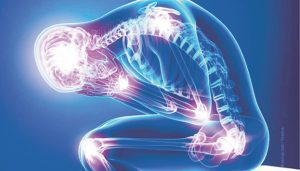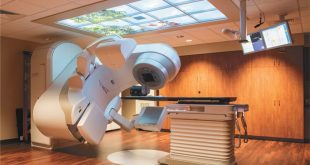 We are hearing about inflammation more often in health and wellness circles, but what exactly is inflammation and how can we reduce it? Inflammation is a process by which your body’s white blood cells and the things they make protect you from infection from outside invaders, such as bacteria and viruses. There are potential invaders living on our bodies and in our environments just waiting to get inside to create a warm home to thrive in. Our immune system is responsible for detecting these invaders and ensuring they do not get in, this process causes inflammation. In tiny amounts, this is a process that protects humans, however if the immune system is not functioning properly or we are overrun with invaders we can create excessive inflammation which can lead to disease. There are two main types: acute, comes on fast and dissipates quickly and chronic which can last months or even years.
We are hearing about inflammation more often in health and wellness circles, but what exactly is inflammation and how can we reduce it? Inflammation is a process by which your body’s white blood cells and the things they make protect you from infection from outside invaders, such as bacteria and viruses. There are potential invaders living on our bodies and in our environments just waiting to get inside to create a warm home to thrive in. Our immune system is responsible for detecting these invaders and ensuring they do not get in, this process causes inflammation. In tiny amounts, this is a process that protects humans, however if the immune system is not functioning properly or we are overrun with invaders we can create excessive inflammation which can lead to disease. There are two main types: acute, comes on fast and dissipates quickly and chronic which can last months or even years.
Conditions that are linked to chronic inflammation include:
• Cancer
• Heart Disease
• Arthritis
• Inflammatory Bowel Disease
• Asthma
• Alzheimer’s Disease
• Osteoarthritis
• Fibromyalgia
• Headaches
• Irritable Bowel Syndrome
• Back and Neck Pain
Symptoms of chronic inflammation can include rashes and other skin disorders, allergies, muscle and joint stiffness, exhaustion, headaches, loss of appetite, and more. These are included, in the most common symptoms that bring people to see their medical professionals, particularly loss of energy. All these symptoms are general and could be related to a myriad of issues which is one of the reasons systemic inflammation goes undiagnosed or misdiagnosed. It is likely that most of us, are systemically inflamed, due to our lifestyle choices.
It is important to understand that the most common inflammatory causes are from food choices, stress levels, sedentary lifestyles, and lack of sleep. While there are some medications that can help with inflammation like Steroids, NSAIDs (Advil and Tylenol), and biologics, none of them ‘cure’ the response, they simply settle it for the time-being. Curing systemic inflammation has proven to be difficult but lowering the risk can be done through various lifestyle modifications.
Ready to see what you can do to reduce inflammation? Here are the top 10 ways to create a less inflamed body:
1. Reduce sugar intake, particularly refined sugars like those found in candies, doughnuts, and white bread
2. Reduce fried foods, cured meats, and refined oils (trans-fats)
3. If you smoke, think seriously about quitting. (Contact us to learn more about Kick BUTT at info@wishingwellworks.com)
4. Limit daily alcohol consumption
5. Manage stress- this is a whole different topic, but stress is a leading cause of inflammation in the body
6. Get enough sleep- while sleep or lack thereof is not a direct cause of inflammation it can increase the negative symptoms experienced by systemic inflammation
7. Increase physical activity- we know that exercise reduces oxidative stress, burns excess calories, and creates a more stable internal environment
8. Eat a diet plentiful in leafy greens, omega-3 rich foods (fish, olive oils, etc.), broccoli, and tomatoes
9. Add anti-inflammatory foods like turmeric, ginger, nuts, berries and other fruits
10. Take time to rest and relax daily- even if only 15 minutes at a time
Changing lifestyles can be difficult! It requires that we recognize what we are currently doing. We need to have the resources and time to change our current behavior, AND the motivation to keep up with the change. This can be very taxing on our personal and professional lives. We recommend that you focus on one aspect at a time and start with an easier task first. We encourage our clients to start with sleep. This is a controllable change, meaning that you can decide when you go to sleep to ensure that you get enough. This will take commitment and a loss of something you enjoy (watching TV, playing online, etc.) but it is easier than say changing your diet, reducing alcohol, or managing stress. Once you are getting enough sleep, energy levels will go up (a small part of the energy increase can also be attributed to potentially reducing inflammation) and with that comes motivation to take on another change. Human beings are habitual creatures. We do not like change. We have the capacity to create habits to help manage the amount of information we must deal with every day. Sometimes these habits (brushing teeth, driving a car, etc.) are helpful. Imagine, forgetting how to drive and having to re-learn it every time you drove! But other times, these habits increase our risks of disease (sedentary living, late-night snacking, grab-and go eating).
When trying to change overall nutrition, it can mean making 10+ changes to our lifestyles. It means reading labels, managing food addictions and portions, and so much more. It can be helpful to follow a plan. The most recommended ‘diets’ to follow for a reduction in inflammation continues to be the Mediterranean Diet and the DASH diet. A traditional diet from the Mediterranean region includes a generous portion of fresh produce, whole grains, and legumes, as well as some healthful fats and fish. It also limits dairy products and eggs. The main goal of the DASH diet is to reduce sodium and it recommends reducing meat consumption and other high sodium products while also encouraging high amounts of fresh fruits and vegetables and whole grains. Both of these ‘diets’ are considered healthy options because they recommend low levels of the items listed that cause inflammation.
Interested in learning more about health and wellness from Wishing Well Works? Talk to your Human Resources department about signing up for one of our various corporate wellness programs. We have over 200 programs that can help you better understand how the human body and mind function and thrive!
 Central Florida Health and Wellness Magazine Health and Wellness Articles of the Villages
Central Florida Health and Wellness Magazine Health and Wellness Articles of the Villages



